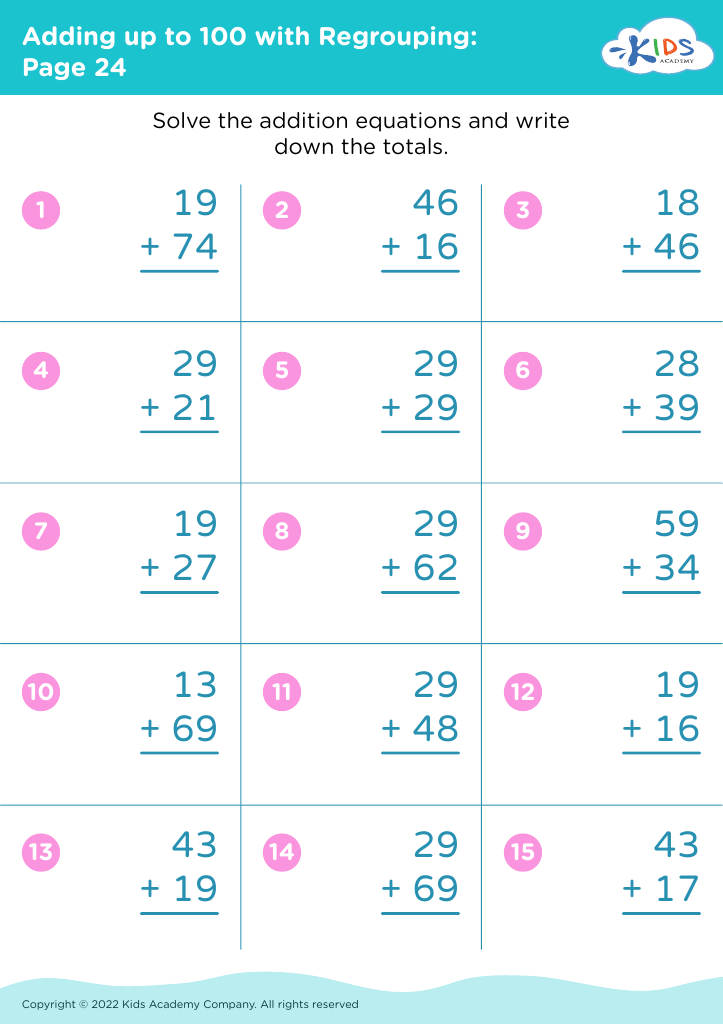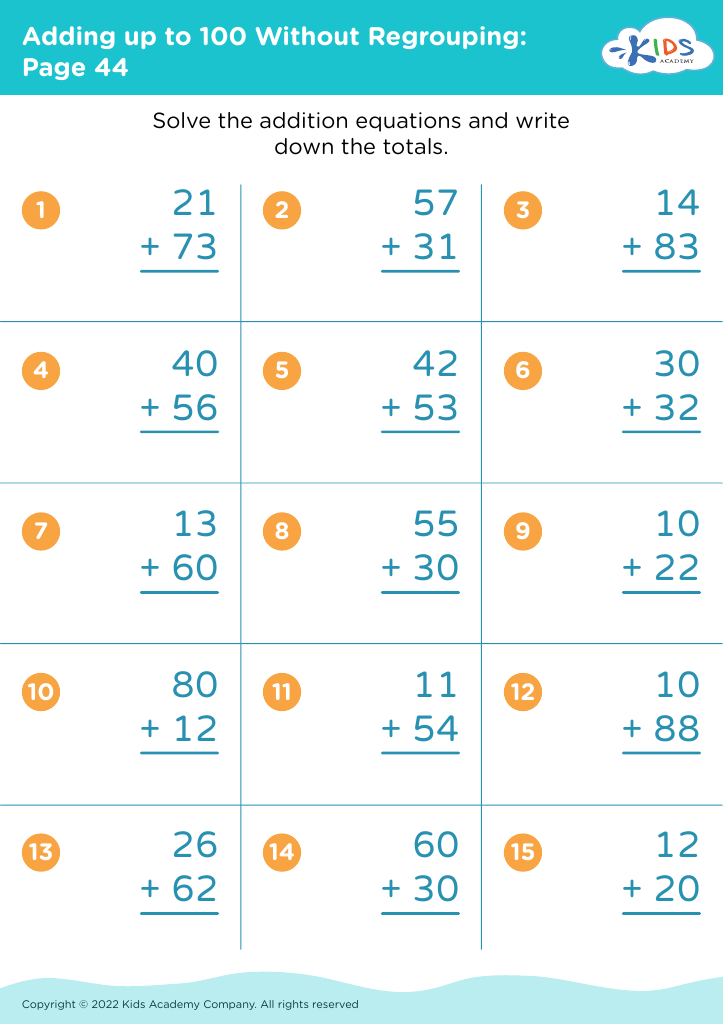Identify shapes Adding up to 100 Worksheets for 7-Year-Olds
4 filtered results
-
From - To
Introduce your 7-year-old to the world of geometry with our "Identify Shapes Adding up to 100 Worksheets." Designed to combine essential math skills with fun shape recognition, these worksheets help young learners identify various shapes while practicing addition up to 100. Each engaging activity reinforces their problem-solving abilities and broadens their understanding of geometric figures. Perfect for enhancing both math and spatial reasoning skills, these printable worksheets are an ideal resource for teachers and parents aiming to make learning interactive and enjoyable. Set your child on the path to success in math with our carefully crafted educational resources.
Understanding shapes and adding numbers up to 100 are foundational skills for 7-year-olds, crucial for their cognitive and educational development. By identifying shapes, children sharpen their spatial awareness, which is essential not only in math but also in everyday problem-solving and reasoning tasks. Recognizing different shapes helps with geometry, an important aspect of later math learning, and allows kids to observe and appreciate the world around them in a more structured way.
Adding up to 100 is equally important as it lays the groundwork for more complex arithmetic. For 7-year-olds, mastering this skill builds their confidence and ensures fluency in basic math operations. It helps in developing number sense, enabling children to understand relationships between numbers, which is critical for more advanced topics like multiplication and division. Additionally, these skills are practical and necessary for everyday activities such as telling time, handling money, and measuring objects.
By focusing on these skills, parents and teachers ensure that children are well-prepared for future academic challenges and everyday life situations. Fostered early, these abilities set the stage for a child’s successful educational journey and promote analytical and logical thinking that will benefit them in all areas of their lives.









%20(1).jpg)












